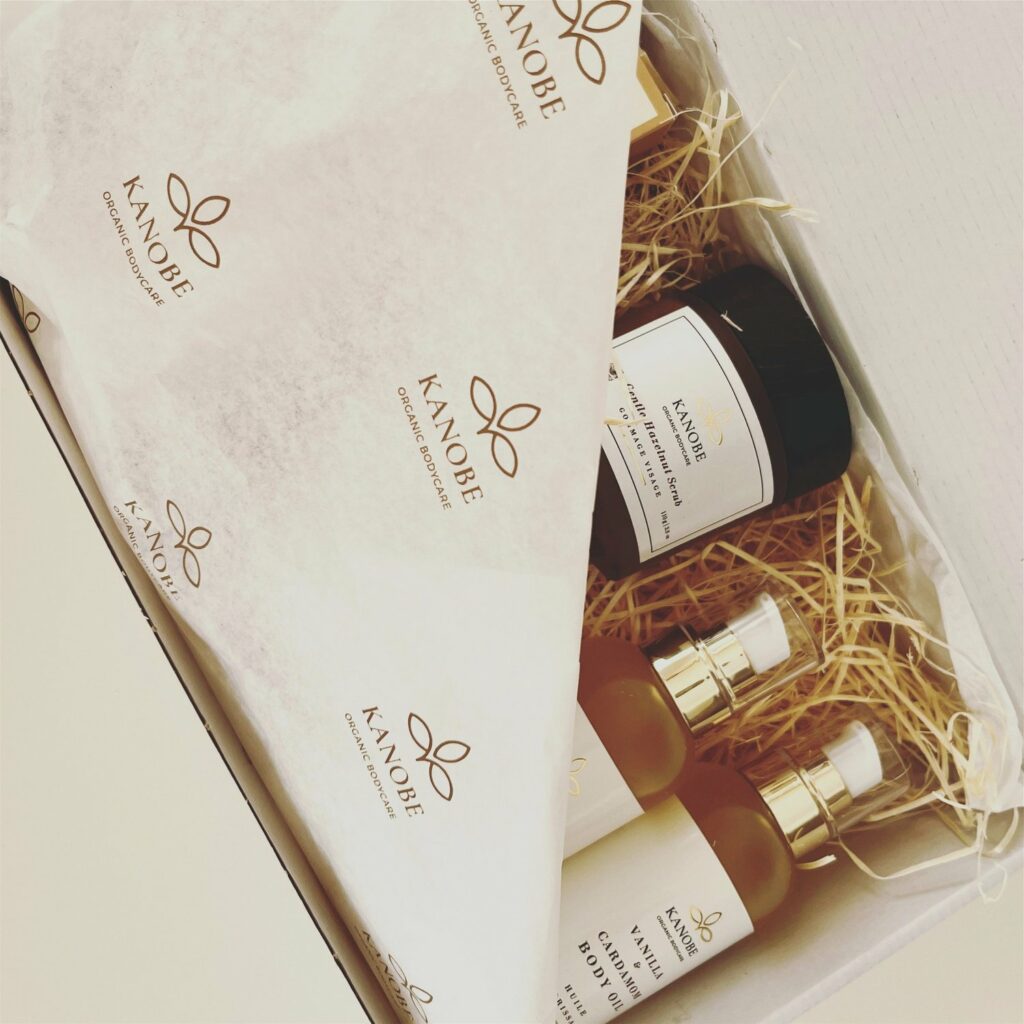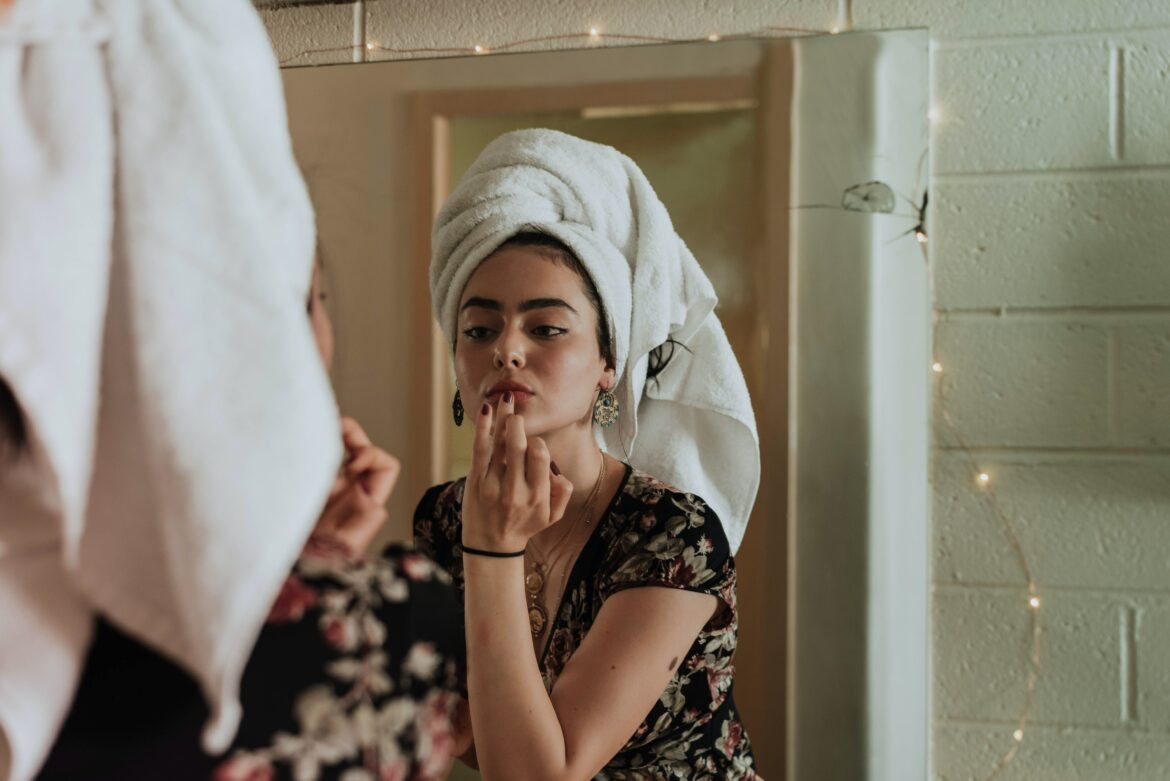In the realm of skincare, where innovation meets tradition, one name stands out—Rezzi Ingemarsson, the visionary founder behind Kanobe. With a spirit fueled by a profound commitment to fair trade, ethical sourcing, and empowering women, Rezzi has woven a narrative that transcends borders.
From the vibrant landscapes of Morocco to the bustling diversity of Brussels, her journey has been a tapestry of cultural inspirations and a celebration of natural beauty traditions. The heart of Kanobe beats to the rhythm of ancient remedies, meticulously selected organic ingredients, and a resolute dedication to cruelty-free practices.
Inspired by the legacy of her grandmother, Rezzi’s brand not only delivers high-quality skincare but also serves as a beacon for women seeking empowerment in the business world. As Kanobe marks its inaugural year, Rezzi shares insights that echo a harmonious blend of tradition and modernity, promising a future where skincare is not just a routine but a holistic celebration of heritage, diversity, and self-care…

Kanobe is deeply committed to fair trade and ethically sourced ingredients. Could you share a specific experience or encounter during your travels that reinforced the importance of ethical sourcing in your mind?
Several years ago, I traveled to Morocco with a friend and explored the capital, Rabat, the historic city of Fes, and the breathtaking Chefchaouen, known for its blue mountains. The captivating landscapes of Morocco inspired me to indulge in authentic hammam and massage experiences. These treatments featured pure almond and argan oils, traditional beldi (black) soap, and clarifying clay masks. I also acquired some henna, which proved beneficial for my locs.
Despite the increasing trend of hammams in Europe, I was struck by the purity of ingredients used in Morocco, drawing parallels to the natural skincare routines of Nigerian women. In Nigeria, where I spent my childhood, skincare routines centered around 100% natural and effective ingredients such as shea and cocoa butters, dudu osun (black soap), and coconut oil. While these ingredients gained global popularity, there remained an imbalance in compensating African farmers for raw materials used in cosmetics products and in the food industry, such as cocoa and vanilla pods.
This realisation fueled my commitment, upon founding Kanobe, to spotlight the rich ingredients from Africa and collaborate with local producers and fairtrade suppliers.
Kanobe products focus not only on skin appearance but also on skin health. How do you balance ancient beauty traditions with modern skincare needs to create products that are both effective and nurturing?
The notion that modern skincare is inherently more advanced than ancient beauty traditions is a misconception. Centuries of human history reveal a consistent desire for clear, exfoliated, and moisturized skin. Professor Gad Saad’s insightful video reminds us that our generation often erroneously believes it is the first to experience or solve problems, a perspective applicable to beauty concerns as well.
Kanobe incorporates remedies from diverse ancient skincare traditions worldwide, addressing specific skin concerns. Ingredients like Somalian ‘Maydi’ frankincense and green mandarin oil from ancient China are integrated into our products. Innovation is crucial in natural skincare, necessitating effective, natural alternatives to traditional formulation ingredients and sustainable, non-plastic packaging.
While ‘modern’ skincare may offer quick, short-term effects, Kanobe focuses on reviving and maintaining skin health with a holistic, sustainable approach, prioritizing enduring results over fleeting benefits. Positive customer feedback, especially regarding relief from skin irritation and chronic dryness, reaffirms our commitment to this approach.
Being cruelty-free is a core value of Kanobe. How challenging was it to ensure that your products met this criterion, and what steps did you take to guarantee cruelty-free formulations?
Maintaining a cruelty-free stance aligns seamlessly with our use of food-grade ingredients in crafting fully natural skincare. Since I formulate and hand-make all Kanobe products, maintaining control over ingredients and quantities is relatively straightforward, eliminating the need for animal testing.
For formulations requiring preservatives or other necessary ingredients, substantial effort has been invested in sourcing natural, effective, and cruelty-free alternatives. This challenge, though demanding, has been met by collaborating with like-minded and innovative companies dedicated to cruelty-free practices.
Kanobe products are crafted with organic ingredients. Could you elaborate on the meticulous process of selecting these ingredients to ensure they are pure, organic, and of the highest quality?
Selecting organic ingredients involves a disciplined approach to certification and quality. Whether reaching out to potential producers in Egypt, Morocco, or Madagascar, each ingredient undergoes a thorough evaluation process. Certification by a reputable third party is a non-negotiable criterion, ensuring the organic integrity of the ingredients. The process requires patience and persistence, as certification does not always guarantee both quality and organic standards.
However, I am pleased to have encountered professional and well-prepared suppliers who provide the necessary documentation, contributing to the overall quality of Kanobe products.
Fostering fair relationships with farmers and producers is central to Kanobe. Can you share a story about a farmer or producer whose life was positively impacted by your brand’s commitment to fair compensation and ethical sourcing?
In its first year, Kanobe aims to encourage the companies I source from to continue investing or producing in Africa. Each Kanobe product features a ‘star’ certified organic ingredient from the continent, such as Egyptian jasmine, Moroccan argan oil, Kenyan Baobab oil, or organic Maydi Frankincense.
Additionally, the ‘holy trinity’ of West African butters and oils—shea butter, cocoa butter, and coconut oil—are sourced from Ghana. While finding certified organic producers from Nigeria has proven challenging, I am actively seeking partnerships in the hope of expanding the brand’s reach and impact.
Kanobe is named in honor of your grandmother. How does her legacy inspire the formulations and ethos of your brand, especially in empowering women through your products?
My grandmother, Felicia Akanobe Egbodor, embodied kindness and entrepreneurial spirit. As a savvy businesswoman, her influence, along with that of my great-grandmother and mother, instilled in me the confidence to pursue various goals.
Kanobe reflects this legacy by prioritizing community impact, mirroring my grandmother’s approach of leading with the heart and considering the broader impact beyond numbers. Naming the company after her is a tribute to her memory, and I hope to inspire other women to pursue their business ideas, regardless of scale.
How has the cultural diversity of Brussels influenced the development of Kanobe products, and how do you incorporate this international flair into your creations?
Brussels, with its thriving organic scene and diverse communities, serves as a rich source of inspiration for Kanobe. The city’s mix of influences, from locally sourced food markets to diverse cultural communities, provides a unique environment for product development. The ability to physically interact with a variety of herbs, oils, and essential oils has been invaluable during the formulation process.
While sourcing ingredients globally is possible online, the immediate accessibility in Brussels allows for a more hands-on and experiential approach, contributing to the international flair in Kanobe’s creations.
Kanobe products are described as “food-grade.” Could you explain the concept of skincare as food for the skin and how it reflects in the formulation of your products?
Our skin, being the largest organ, benefits from ingredients that are not only good for our diet but also promote healthy and resilient skin. The scientific correlation between diet and skin health is well-established. Recognizing that harmful skincare products can introduce toxins to the skin, Kanobe adopts a skincare-as-food philosophy.
All products are crafted entirely from naturally-derived ingredients, aligning with the wisdom of traditional skincare practices. No exceptions are made for fragrances or preservatives, ensuring the purity of Kanobe products. Transparency is a core value, reflected in the product ingredients being suitable for consumption—though it’s important to clarify that Kanobe products should not be ingested.
Kanobe products are suitable for sensitive skin. What are the challenges in creating products for sensitive skin, and how do you ensure your formulations are gentle yet effective?
Creating products for sensitive skin involves extensive research, combining traditional remedies known for their soothing properties with organic formulations. Remedies like oat soap and shea butter, renowned for their skin-soothing qualities, are incorporated into the Kanobe range.
The entire product line is free of synthetic fragrances, challenging the norm of sensory experiences often associated with skincare. The careful selection of natural alternatives and a heightened awareness of potential allergens and essential oils ensures that Kanobe formulations are both gentle and effective for a variety of skin types. Essential oils, with their medicinal history spanning millennia, are used judiciously, recognizing their potential benefits for specific skin concerns.
You mentioned using gentle methods to preserve the integrity of organic produce. Could you shed light on these methods and how they contribute to the overall quality of Kanobe products?
Preserving the active qualities and natural fragrances of pure, unrefined ingredients is a priority in Kanobe’s production process. Minimal heat is applied to ingredients, avoiding unnecessary mechanical stress. The traditional cold process, used for all Kanobe soap bars, requires patience as the soaps cure over several weeks.
This method allows organic oils and butters to maintain their unique properties, while retaining glycerin for added moisturization. Embracing the principles of ‘slow’ skincare, the brand ensures that the benefits of organic ingredients are preserved, contributing to the overall quality of Kanobe products.
Kanobe incorporates ingredients from around the world. Can you share a story of a specific ingredient that amazed you with its benefits and became a star component in one of your products?
Wild carrot essential oil, not indigenous to Africa, captivated me with its healing properties and became a star component in several Kanobe body oils and balms. Despite its non-native origin, the oil’s remarkable benefits warranted its inclusion. Another standout is baobab oil, derived from the African ‘Tree of Life.’
Its exceptional healing properties, particularly in soothing skin burns, led to the creation of a dedicated body balm. These ingredients, with their diverse cultural backgrounds, showcase Kanobe’s commitment to incorporating what works from various traditions into its products.

Kanobe draws inspiration from the vivacious women in your family. In what ways does your brand aim to empower women beyond providing high-quality skincare products?
Empowering women extends beyond product formulation for Kanobe. Actively seeking partnerships with and sourcing from women-owned businesses is a consistent effort. The brand ensures that its traditional shea butter, coconut oil, and argan oil are sourced from women’s cooperatives, offering above-market compensation for their contributions.
Additionally, Kanobe approaches skincare as a moment of joyous self-care, promoting positive associations for women. The brand challenges conventional beauty terminology, preferring to focus on nourishing and rejuvenating properties rather than adopting the prevalent ‘anti-aging’ language. This intentional choice aligns with Kanobe’s commitment to empowering women through positive messaging and impactful business practices.
What’s next for Kanobe? Are there any upcoming product launches or initiatives that your customers can look forward to, and how do these align with the core values of your brand?
Passionate about empowering African-based producers, Kanobe is working on an initiative to enhance their competitiveness and facilitate easier exportation. The brand is also committed to connecting with retailers through the Folklore Connect platform, fostering meaningful partnerships and expanding Kanobe’s reach.
Future product launches will include everyday skincare staples, such as raw nut butters, soothing skin lotions, and plant-based shower gels. Responding to customer demand, larger sizes of certain products, like the Ethiopian coffee body scrub and Rich Cocoa Body Butter, will be introduced. As Kanobe continues to explore ideas, the brand anticipates delving into the realms of hair care, natural perfumery, and scented candles, promising an exciting and diverse future.
As we conclude this enlightening journey into the heart and soul of Kanobe with its visionary founder, Rezzi Ingemarsson, we’re left inspired by the fusion of tradition and innovation. In every drop of Kanobe’s skincare creations, there’s a narrative of ethical sourcing, empowering legacies, and a commitment to natural beauty that transcends borders.
As the sun sets on our conversation, we’re left eagerly anticipating the continued growth of Kanobe, a brand that not only nourishes the skin but also nurtures a global community connected by a shared passion for authenticity and well-being. Here’s to radiant futures and the beauty that blooms when tradition meets the contemporary, all within the embrace of Kanobe.




Comments are closed.